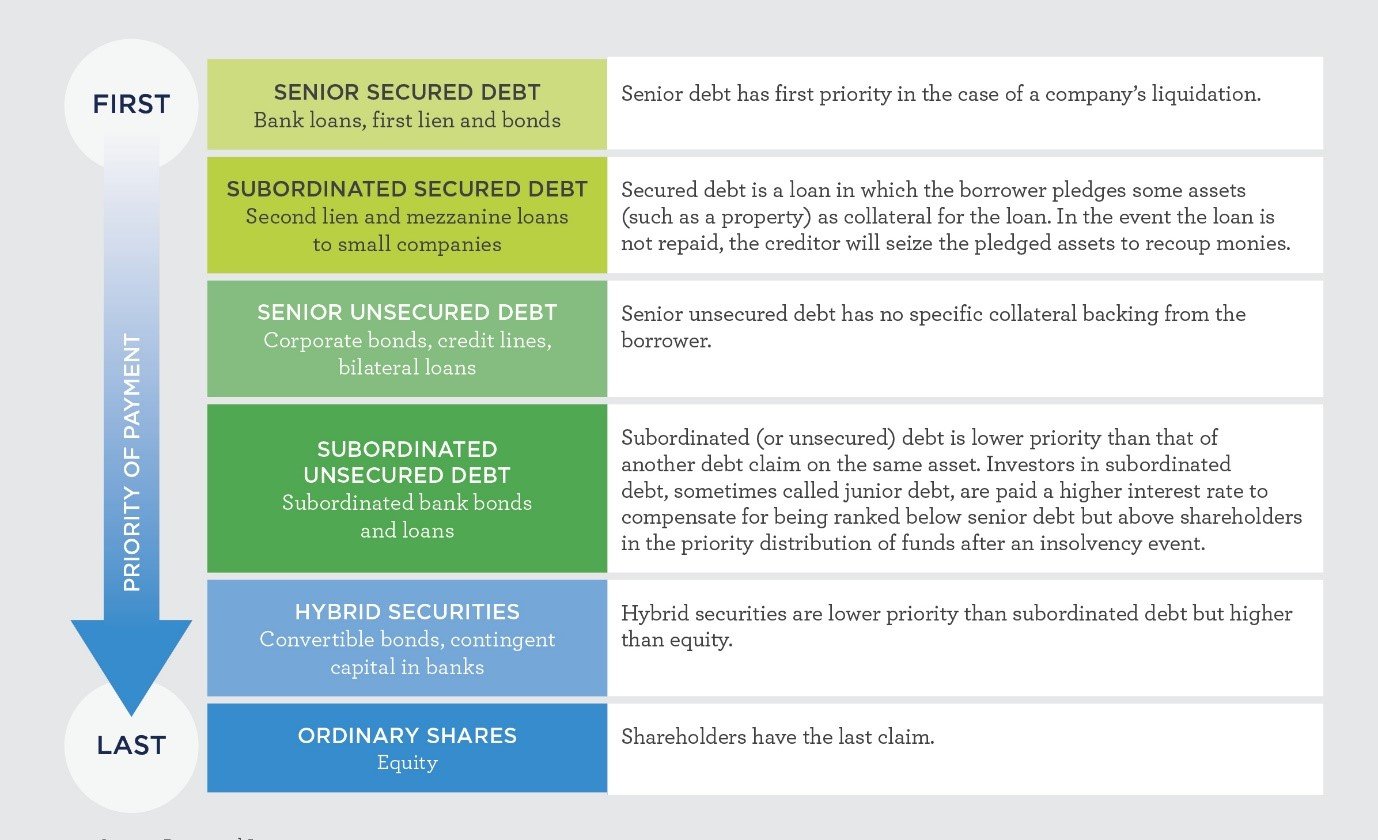
Seniority of assets refers to where an asset sits in the capital structure of a company and how the asset is ranked in terms of priority of payment.
Understanding the seniority of assets informs investors how they will fare in the event of a company being wound up. Investors in fixed income assets, such as secured or unsecured debt, generally rank higher in priority than shareholders. Where capital is returned, these investors should receive their invested capital before investors in hybrid securities or shares.

As shown above, regardless of the type of fixed income asset, debt is ranked above equity in the priority of payments. Different types of fixed income assets have different rankings. Senior secured debt has the highest priority for payment, followed by subordinated secured debt. Secured means there is some form of security backing the asset; for example, a business loan might be secured against a commercial building by way of a mortgage. Senior unsecured and subordinated unsecured debts sit below secured debts in the seniority ranking, as they are not backed by any collateral.
As debt holders are ranked higher than equity holders and are repaid first in the event of a company’s liquidation, fixed income assets are generally considered a lower risk investment option than equities. The seniority ranking of each asset in the capital structure can also indicate its prices stability. The pricing of higher seniority assets such as bank loans or corporate bonds is typically less volatile than assets which are ranked lower in the capital structure, such as hybrid securities or shares.
The Perpetual Credit Income Trust (PCI) invests in an actively managed portfolio of credit and fixed income assets which can be diversified by asset type, credit quality, maturity, country and issuer. This includes a combination of investment grade assets and high yield assets (sub-investment grade or unrated assets). The allocation to high yield assets provides the opportunity to generate higher returns for the portfolio which can be an attractive source of income for the portfolio. When investing in high yield, the Portfolio Manager typically focuses on assets at the top of the capital structure such as senior or subordinated debt under its robust, active and risk aware investment process.
Each month, the PCI Monthly Investment Report provides a breakdown of the portfolio by seniority, credit quality and sector. Past reports can be viewed here.
